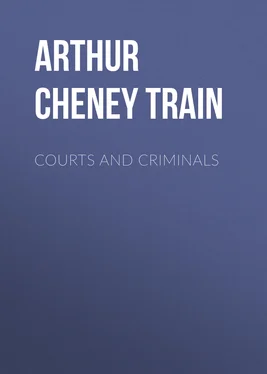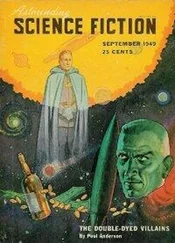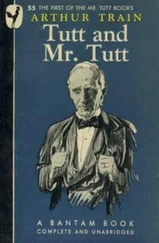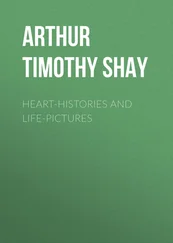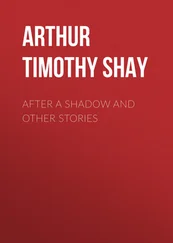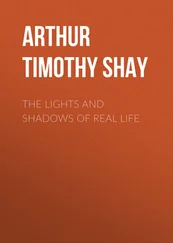Arthur Train - Courts and Criminals
Здесь есть возможность читать онлайн «Arthur Train - Courts and Criminals» — ознакомительный отрывок электронной книги совершенно бесплатно, а после прочтения отрывка купить полную версию. В некоторых случаях можно слушать аудио, скачать через торрент в формате fb2 и присутствует краткое содержание. Жанр: foreign_antique, Юриспруденция, Юриспруденция, на английском языке. Описание произведения, (предисловие) а так же отзывы посетителей доступны на портале библиотеки ЛибКат.
- Название:Courts and Criminals
- Автор:
- Жанр:
- Год:неизвестен
- ISBN:нет данных
- Рейтинг книги:4 / 5. Голосов: 1
-
Избранное:Добавить в избранное
- Отзывы:
-
Ваша оценка:
- 80
- 1
- 2
- 3
- 4
- 5
Courts and Criminals: краткое содержание, описание и аннотация
Предлагаем к чтению аннотацию, описание, краткое содержание или предисловие (зависит от того, что написал сам автор книги «Courts and Criminals»). Если вы не нашли необходимую информацию о книге — напишите в комментариях, мы постараемся отыскать её.
Courts and Criminals — читать онлайн ознакомительный отрывок
Ниже представлен текст книги, разбитый по страницам. Система сохранения места последней прочитанной страницы, позволяет с удобством читать онлайн бесплатно книгу «Courts and Criminals», без необходимости каждый раз заново искать на чём Вы остановились. Поставьте закладку, и сможете в любой момент перейти на страницу, на которой закончили чтение.
Интервал:
Закладка:
A few years ago it was brought to the attention of the New York authorities that many blackmailing letters were being received bearing the name of "Lewis Jarvis." These were of a character to render the apprehension of the writer of them a matter of much importance. The letters directed that the replies be sent to a certain box in the New York post-office, but as the boxes are numerous and close together it seemed doubtful if "Lewis Jarvis" could be detected when he called for his mail. The district attorney, the police, and the post-office officials finally evolved the scheme of plugging the lock of "Lewis Jarvis's" box with a match. The scheme worked, for "Jarvis," finding that he could not use his key, went to the delivery window and asked for his mail. The very instant the letters reached his hand the gyves were upon the wrists of one of the best-known attorneys in the city.
When the district attorney has been apprised that a crime has been committed, and that a certain person is the guilty party, he not infrequently allows the suspect to go his way under the careful watch of detectives, and thus often secures much new evidence against him. In this way it is sometimes established that the accused has endeavored to bribe the witnesses and to induce them to leave the State, while the whereabouts of stolen loot is often discovered. In most instances, however, the district attorney begins where the police leave off, and he merely supplements their labors and prepares for the actual trial itself. But the press he has always with him, and from the first moment after the crime up to the execution of the sentence or the liberation of the accused, the reporters dog his footsteps, sit on his doorstep, and deluge him with advice and information.
Now a curious feature about the evidence "worked up" by reporters for their papers is that little of it materializes when the prosecutor wishes to make use of it. Of course, some reporters do excellent detective work, and there are one or two veterans attached to the criminal courts in New York City who, in addition to their literary capacities, are natural-born sleuths, and combine with a knowledge of criminal law, almost as extensive as that of a regular prosecutor, a resourcefulness and nerve that often win the case for whichever side they espouse. I have frequently found that these men knew more about the cases which I was prosecuting than I did myself, and a tip from them has more than once turned defeat into victory. But newspaper men, for one reason or another, are loath to testify, and usually make but poor witnesses. They feel that their motives will be questioned, and are naturally unwilling to put themselves in an equivocal position. The writer well remembers that in the Mabel Parker case, where the defendant, a young and pretty woman, had boasted of her forgeries before a roomful of reporters, it was impossible, when her trial was called, to find more than one of them who would testify—and he had practically to be dragged to the witness chair. In point of fact, if reporters made a practice of being witnesses it would probably hurt their business. But, however much "faked" news may be published, a prosecutor who did not listen to all the hints the press boys had to give would make a great mistake; and as allies and advisers they are often invaluable, for they can tell him where and how to get evidence of which otherwise he would never hear.
The week before a great case is called is a busy one for the prosecutor in charge. He is at his office early to interview his main witnesses and go over their testimony with them so that their regular daily work may not be interrupted more than shall be actually necessary. Some he cautions against being overenthusiastic and others he encourages to greater emphasis. The bashful "cop" is badgered until at last he ceases to begin his testimony in the cut-and-dried police fashion.
"On the morning of the twenty-second of July, about 3.30 A.M., while on post at the corner of Desbrosses Street—," he starts.
"Oh, quit that!" shouts the district attorney. "Tell me what you saw in your own words."
The "cop" blushes and stammers:
"Aw, well, on the morning of the twenty-second of July, about 3.30 A.M."
"Look here!" yells the prosecutor, jumping to his feet and shaking his fist at him, "do you want to be taken for a d—n liar? 'Morning of the twenty-second of July, about 3.30 A.M., while on post I' You never talked like that in your life."
By this time the "cop" is "mad clear through."
"I'm no liar!" he retorts. "I saw the – pull his gun and shoot!"
"Well, why didn't you say so?" laughs the prosecutor, and the officer mollified with a cigar, dimly perceives the objectionable feature of his testimony.
About this time one of the sleuths comes in to report that certain much-desired witnesses have been "located" and are in custody downstairs. The assistant makes immediate preparation for taking their statements. Then one of the experts comes in for a chat about a new phase of the case occasioned by the discovery that the defendant actually did have spasms when an infant. The assistant wisely makes an appointment for the evening. A telegram arrives saying that a witness for the defence has just started for New York from Philadelphia and should be duly watched on arrival. The district attorney sends for the assistant to inquire if he has looked up the law on similar cases in Texas and Alabama—which he probably has not done; and a friend on the telephone informs him that Tomkins, who has been drawn on the jury, is a boon companion of the prisoner and was accustomed to play bridge with him every Sunday night before the murder.
Coincidently, some private detectives enter with a long report on the various members of the panel, including the aforesaid Tomkins, whom they pronounce to be "all right," and as never having, to their knowledge, laid eyes on the accused. Finally, in despair, the prosecutor locks himself in his library with a copy of the Bible, "Bartlett's Familiar Quotations," and a volume of celebrated speeches, to prepare his summing up, for no careful trial lawyer opens a case without first having prepared, to some extent, at least, his closing address to the jury. He has thought about this for weeks and perhaps for months. In his dreams he has formulated syllogisms and delivered them to imaginary yet obstinate talesman. He has glanced through many volumes for similes and quotations of pertinency. He has tried various arguments on his friends until he knows just how, if he succeeds in proving certain facts and the defence expected is interposed, he is going to convince the twelve jurors that the defendant is guilty and, perhaps, win an everlasting reputation as an orator himself.
This superficial sketch of how an important criminal case is got ready for trial would be incomplete without some further reference to something which has been briefly hinted at before—preparation upon its purely legal aspect. This may well demand almost as much labor as that required in amassing the evidence. Yet a careful and painstaking investigation of the law governing every aspect of the case is indispensable to success. The prosecutor with a perfectly clear case may see the defendant walk out of court a free man, simply because he has neglected to acquaint himself with the various points of law which may arise in the course of the trial, and the lawyer for an accused may find his client convicted upon a charge to which he has a perfectly good legal defence, for the same reason.
Looking at it from the point of view of the prisoner's counsel, it is obvious that it is quite as efficacious to free your client on a point of law, without having the case go to the jury at all, as to secure an acquittal at their hands.
At the conclusion of the evidence introduced in behalf of the State there is always a motion made to dismiss the case on the ground of alleged insufficiency in the proof. This has usually been made the subject of the most exhaustive study by the lawyers for the defence, and requires equal preparation on the part of the prosecutor. The writer recalls trying a bankrupt, charged with fraud, where the lawyer for the defendant had written a brief of some three hundred pages upon the points of law which he proposed to argue to the court upon his motion to acquit. But, unfortunately, his client pleaded guilty and the volume was never brought into play.
Читать дальшеИнтервал:
Закладка:
Похожие книги на «Courts and Criminals»
Представляем Вашему вниманию похожие книги на «Courts and Criminals» списком для выбора. Мы отобрали схожую по названию и смыслу литературу в надежде предоставить читателям больше вариантов отыскать новые, интересные, ещё непрочитанные произведения.
Обсуждение, отзывы о книге «Courts and Criminals» и просто собственные мнения читателей. Оставьте ваши комментарии, напишите, что Вы думаете о произведении, его смысле или главных героях. Укажите что конкретно понравилось, а что нет, и почему Вы так считаете.
